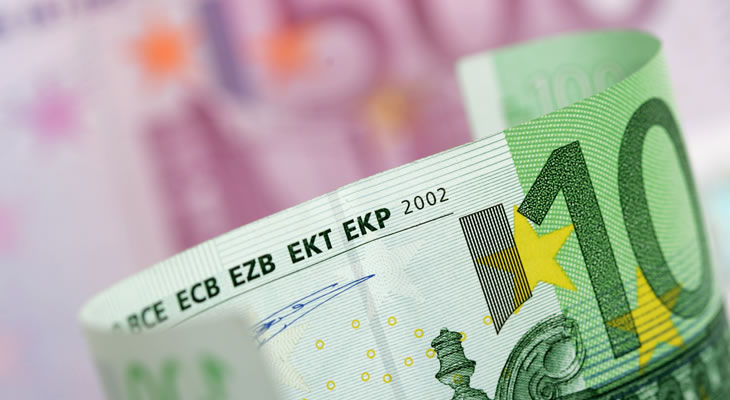An unexpectedly sharp contraction in German factory orders added fresh pressure to the Euro, suggesting that the Eurozone’s powerhouse economy is not in such a robust state of health.
Orders weakened by -2.5% on the month in April, pointing towards a general decline in demand which could lead to softness in the wider economy.
This gave investors little particular cause for confidence in the Euro, particularly ahead of the European Central Bank’s (ECB) June policy meeting.
While markets are hoping to see a shift towards hawkishness amongst policymakers the latest comments from ECB President Mario Draghi are unlikely to prove especially encouraging.
If Draghi talks down the prospect of tapering the quantitative easing program, though, this could prompt the Euro Pound exchange rate to shed further ground.
However, any signs of increased optimism over the outlook of the Eurozone economy may offer the single currency a fresh rallying point, in the short term at least.
Provided Draghi adopts a more positive tone, speculation over the possibility of the ECB returning to a tightening bias sooner rather than later is likely to bolster the EUR GBP exchange rate.
Stronger showings from the latest German production and trade data could also improve the appeal of the single currency.
EUR GBP Exchange Rate Volatility Forecast on UK Election Outcome
Demand for the Pound, meanwhile, is likely to remain somewhat volatile as investors await the results of the snap general election.
While the opinion polls have continued to narrow in recent days the outcome of the election remains rather uncertain, even though markets still favour the odds of an increased Conservative majority.
Regardless of the outcome, the EUR GBP exchange rate is likely to see some sharp movement once the polls close and the results start to come in.
As analysts at ING noted:
‘The real focus for GBP in the initial aftermath will be on the extremes – either a sizable (+100) Conservative majority or the uncertainty of a hung parliament would be a relative surprise at this stage and could see a meaningful move higher or lower in GBP.’
Any significant gains for the Conservatives could help to ease market worries over upcoming Brexit negotiations, in spite of the decidedly hard line that Theresa May has taken on the issue.
Political concerns are likely to overshadow the latest raft of UK data, although a weaker NIESR gross domestic product estimate could put some extra downside pressure on Sterling ahead of the weekend.


Comments are closed.